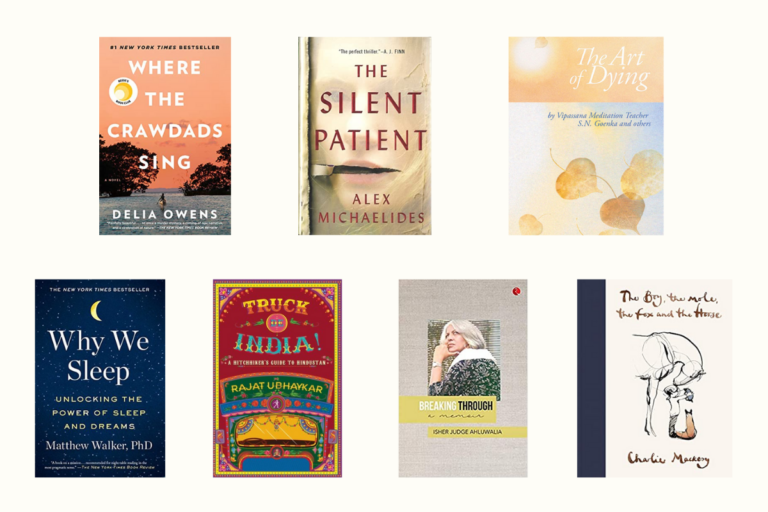Hello and Welcome to 2021!
This is a delayed post of my book reflection series for 2020. I read a total of 50 books the past year, a huge jump from the 12 books in 2019. Below is a short reflection/review of the books I read in November and December.
As always, there was a mix of memoirs, fiction, and non-fiction books. It’s hard to choose a favorite because all of them are unique and I enjoyed each one. But if I had to recommend one book that everyone should read once, it’s How to Fail at Almost Everything and Still Win Big by Scott Adams. Powerful book. Lots of interesting stories from the author’s life and practical tips on failure and how to live a good life. He might seem self-righteous at first, but stick with it and you’ll come out with a refreshed perspective on failures and success.

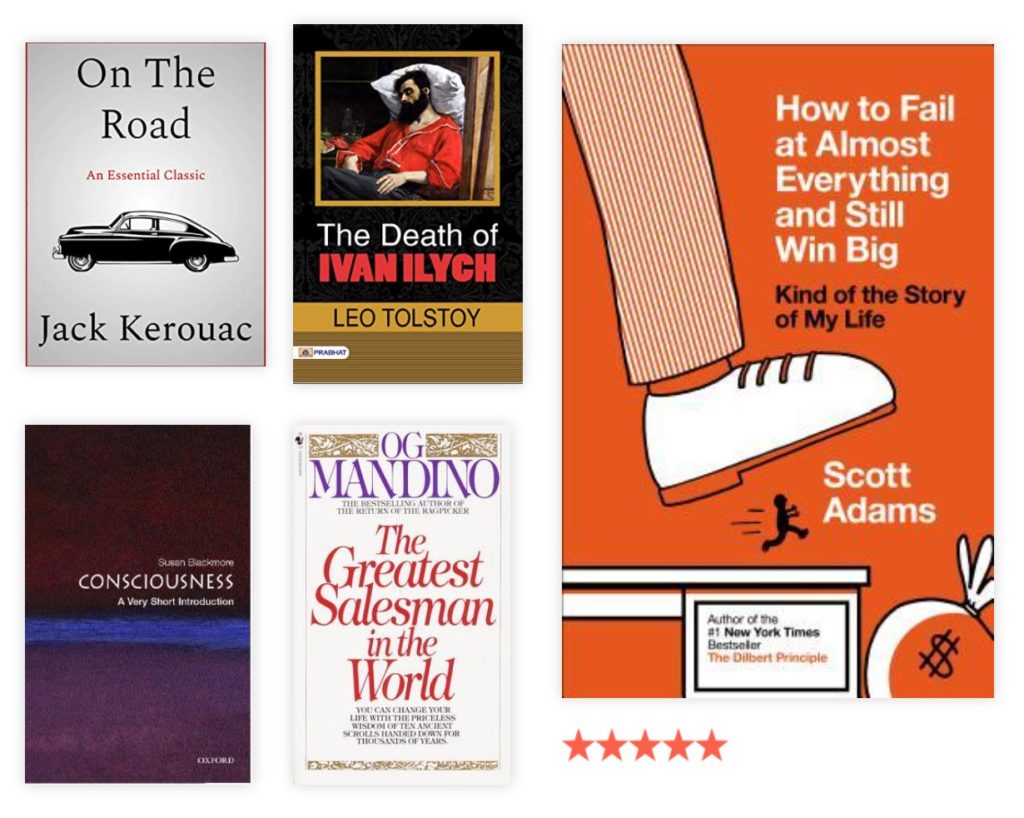
I also updated my reading tech. Earlier it was just hard copy books and an Audible subscription, I bought a refurbished kindle to read while traveling. While nothing can beat the experience of holding and reading a book, I’ve started to enjoy my Kindle very much.
Stats:
2020 Book Goal: 24
Books Finished: 50
Pages Read: 14,947
Shortest Book: 56 Pages – In Praise of Shadows by Junichiro Tanizaki
Longest Book: 946 Pages – Anna Karenina by Leo Tolstoy
Average Book Length: 298 Pages
A Shot At History by Abhinav Bindra
My friend Ritul loaned me this book and I instantly fell in love with it. Reading books from a different field is underrated. It’s about Abhinav’s journey of winning an Olympic Gold in air rifle shooting, a first for India.
I don’t know anything about shooting, so the book brought in a fresh change of details about a new sport. How the game works, Abhinav’s fascination with the sport, winning from an early age, losing an Olympic medal, his despair, and coming back stronger to finally win it.
Being a sportsman in my school and college, some chapters really hit home.
It’s unimaginable to me the hours of practice he put into it from a young age. And here I am, getting distracted every 15 mins from a notification on my phone. It made me think about the lives of professionals in sports and artists and the amount of hard work they put in which is generally ignored by the common folks watching them perform on TV with a single comment.
If you have played any sport competitively, I highly recommend this book.
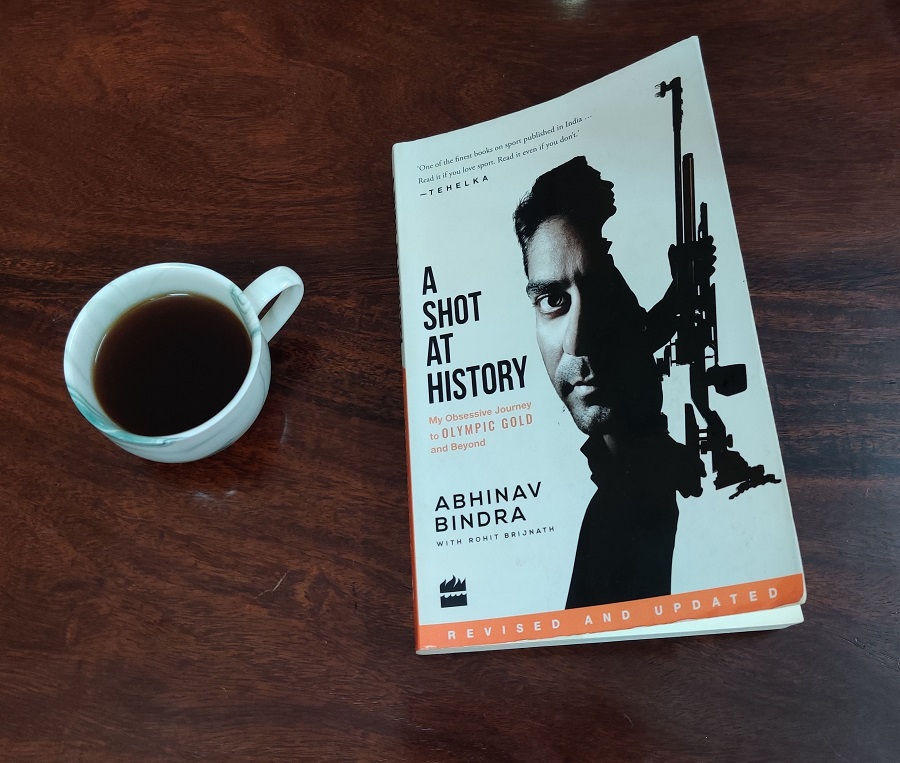
Rules of Civility by Amor Towles
Being of fan of other works by Amor Towles, I decided to start with his first book Rules of Civility.
I don’t have to say much about the book other than I’d give it a 3 on 5. It’s a novel based in 1938 New York where the main character Katey Kontent’s life takes a turn as she meets Tinker Grey by chance on New Year’s Eve in a jazz bar. She slowly enters the world of the upper class NY society, quits her job when she gets a promotion and then it’s just a whirlwind events that take place in her life.
The book is rated very well on Goodreads, I guess I justg didn’t relate much to the retro New York vibes.
“In our twenties, when there is still so much time ahead of us, time that seems ample for a hundred indecisions, for a hundred visions and revisions—we draw a card, and we must decide right then and there whether to keep that card and discard the next, or discard the first card and keep the second.
Amor Towles, Rules of Civility
And before we know it, the deck has been played out and the decisions we have just made will shape our lives for decades to come.”
Sum: Forty Tales from the Afterlives by David Eagleman
What a book. While I only remember like 4-5 out of the 40 stories in this book, it’s something I will go back to listen every few weeks.
Recommended numerous times by Tim Ferris on his podcast, I got the audiobook and listened to the stories leisurely strolling on my terrace, thinking about mortality.
It’s a collection of 40 stories, each about 3-5 minutes in length, on what happens after you die.
Mostly funny, sometimes grim, a book that will make you think.
“Although we credit God with designing man, it turns out He’s not sufficiently skilled to have done so. In point of fact, He unintentionally knocked over the first domino by creating a palette of atoms with different shapes. Electron clouds bonded, molecules bloomed, proteins embraced, and eventually cells formed and learned how to hang on to one another like lovebirds. He discovered that by simmering the Earth at the proper distance from the Sun, it instinctively sprouted with life. He’s not so much a creator as a molecule tinkerer who enjoyed a stroke of luck: He simply set the ball rolling by creating a smorgasbord of matter, and creation ensued.”
On The Road by Jack Kerouac
I googled best books to read on travel and this book popped up many times. Having read Into The Wild, Travels With Charley, and a few books by Bill Bryson, I decided maybe it’s time to read the quintessential novel of America – On The Road.
It was a bad idea. Jack Kerouac writes about his adventures traveling through America mostly with his friend Dean Moriarty showcasing the beat generation of the US during the 1950s.
I was bored after the first few chapters but decided to continue reading. A lesson here for me – ‘If you don’t enjoy a book early on, it’s okay to quit it.’
Their travels seemed pointless to me. Just hopping from New York to San Francisco and back again and again while being drunk, getting high, and Dean having lots of sex, three wives, having kids with the wives then treating them like trash, and then having more sex while driving at reckless speed and always being broke.
About the Beat Generation from Wikipedia: The central elements of Beat culture are the rejection of standard narrative values, making a spiritual quest, the exploration of American and Eastern religions, the rejection of economic materialism, explicit portrayals of the human condition, experimentation with psychedelic drugs, and sexual liberation and exploration
A popular review on Goodreads:
“This is probably the worst book I have ever finished, and I’m forever indebted to the deeply personality-disordered college professor who assigned it, because if it hadn’t been for that class I never would’ve gotten through, and I gotta tell you, this is the book I love to hate.
I deeply cherish but don’t know that I fully agree with Truman Capote’s assessment: that On the Road “is not writing at all — it’s typing.”
The Death of Ivan Ilych by Leo Tolstoy
“Morning or night, Friday or Sunday, made no difference, everything was the same: the gnawing, excruciating, incessant pain; that awareness of life irrevocably passing but not yet gone; that dreadful, loathsome death, the only reality, relentlessly closing in on him; and that same endless lie. What did days, weeks, or hours matter?”
A short 80ish page read on mortality. The main character Ivan Ilytch had a good career, big family, nice friends but suddenly becomes terribly ill and is on his deathbed.
As he comes face to face with death and depends on others for even the smallest tasks, he becomes agitated, angry, and starts hating everyone.
Alone in his agony, Ivan Ilytch finally realizes his fate and passes away.
A good book to get started in Russian Literature.
Consciousness: A Very Short Introduction by Susan Blackmore
Another short read. A 130-page introduction to Consciousness, a topic I’ve been interested in since I started meditating 3 years ago.
The Very Short Introductions Series by Oxford Press is huge. There’s a book on almost every topic you can imagine, presented in a concise and readable format.
This one starts off a bit dry with chapters on the mystery of consciousness and the details of the human brain but picks up pace when the author talks about conscious will, out-of-body experiences and the physiology of altered states of consciousness.
Here is a snippet from the book:
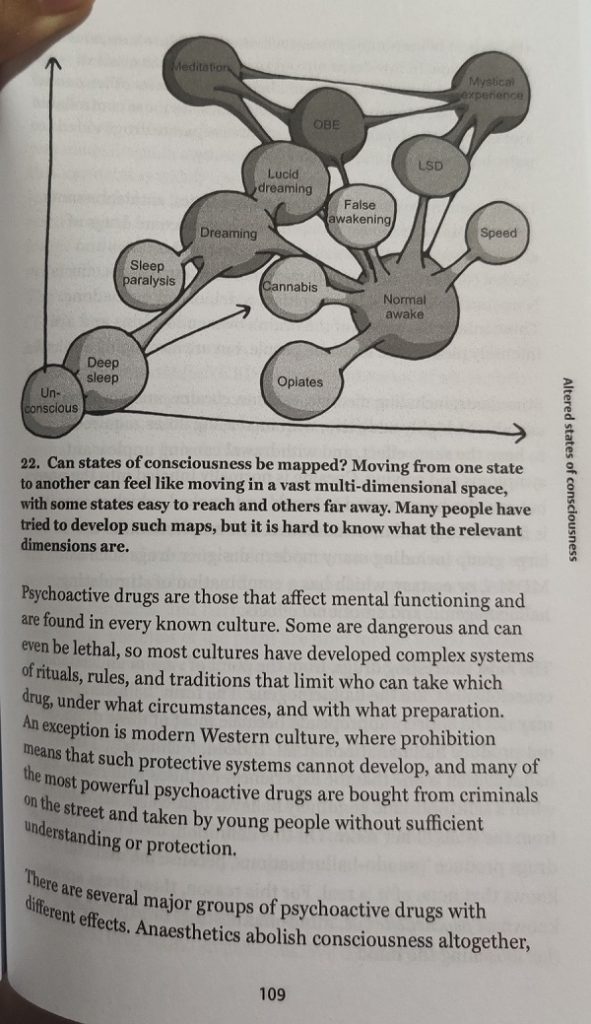
The Greatest Salesman in the World by Og Mandino
Recommend by Matthew McConaughey on the Tim Ferris Show saying this book transformed his life completely.
It’s a short book again, but if you read it according to the instruction, it would take you over 9 months to finish it.
The book contains wisdom from an ancient scroll, which I think is just to add a touch to the story, it’s written by the author Og Mandino himself.
If you enjoy self-development and positive affirmations kind of books, this is for you. It’s about how to talk positively to yourself and it has some really good stuff.
“I am here for a purpose and that purpose is to grow into a mountain, not to shrink to a grain of sand. Henceforth will I apply ALL my efforts to become the highest mountain of all and I will strain my potential until it cries for mercy. ”
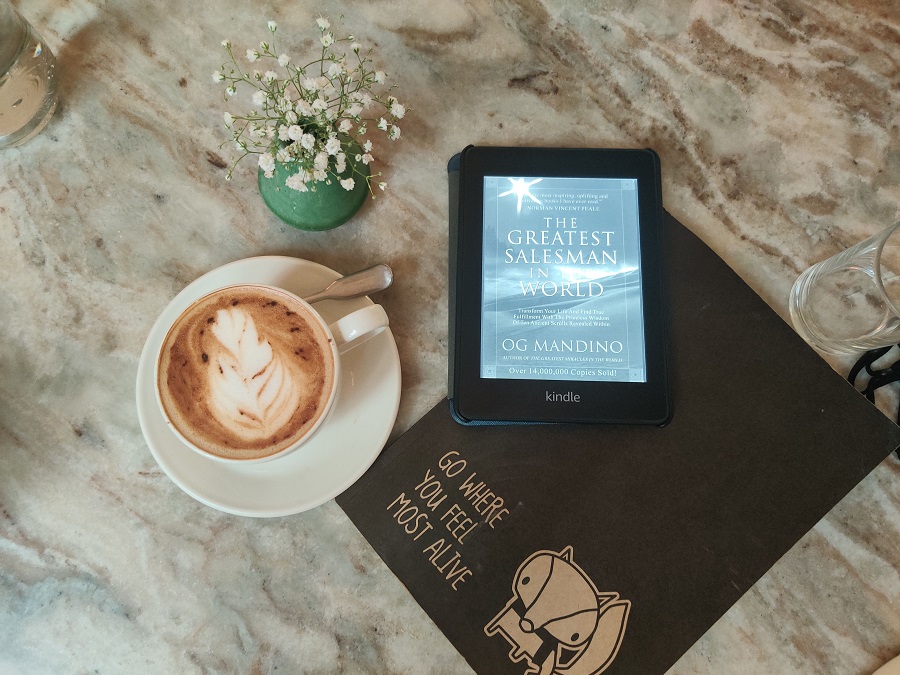
How to Fail at Almost Everything and Still Win Big by Scott Adams
Scott Adams failed at a lot of things and got wildly successful at a few. From being a corporate office worker to the creator of the world’s most famous comic Dilbert, Scott learned to invite failures in and keep pushing on.
In this book, he shares his often comical yet empowering stories along with some clean tricks and strategies for being your best. Having good conversations, why golf is important, setting systems rather than goals, managing your corporate career, diet, and exercise; it’s your go-to no bullshit book that doesn’t tell you what to do but rather finds what works for you.
If you don’t enjoy reading popular self-help books like ‘the 7-habits of highly successful people’, this one is for you.
“Positivity is far more than a mental preference. It changes your brain, literally, and it changes the people around you. It’s the nearest thing we have to magic.”
Scott Adams
